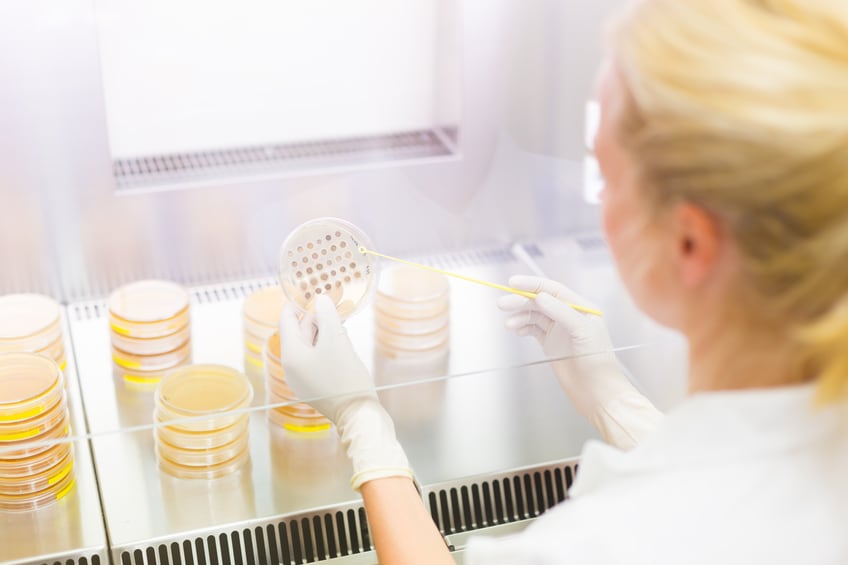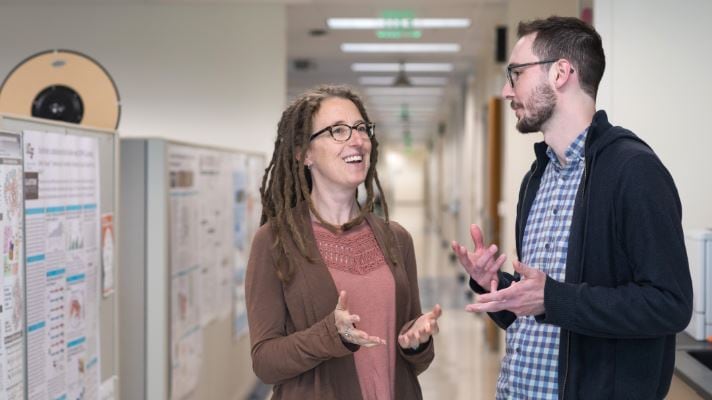Investigations into what makes a super FMT donor revealed the existence of these individuals, whose stool was particularly likely to influence the host gut and to lead to clinical improvement.
“We see transplants from super-donors achieve clinical remission rates of perhaps double the remaining average,” explained senior review author Dr Justin O'Sullivan from the University of Auckland.
“Our hope is that if we can discover how this happens, then we can improve the success of faecal transplantation and even trial it for new microbiome-associated conditions like Alzheimer's, multiple sclerosis and asthma."
While FMT has become a highly effective approach for recurrent Clostridium difficile infection its efficacy for treating chronic diseases associated with microbial dysbiosis has so far been modest.
A two-step process
According to the University of Auckland research team, FMT success is mostly based on a positive clinical response in the recipient.
However, they also add success can also be defined by a shift in the gut microbiome profile of an individual toward that of the donor.
“We argue that FMT success can be considered to be a two-step process; first requiring the transplanted microbiome to engraft within the new host and augment the local commensal community, after which clinical improvement may be observed,” the review noted.
Comparing the gut microbiota profiles of different donors has revealed that microbial diversity is a reliable predictor for FMT success.
O'Sullivan and colleagues began reviewing faecal transplantation trials for clues to the origin of the super-donor phenomenon.
They found that super donor stool tended to have high levels of specific 'keystone species' - bacteria that produce chemicals to ward off or prevent disease in the host gut.
The keystone species theory can be tested by selecting donor stool rich in particular strains - or by designing 'precision' transplants with a defined mixture of beneficial bacteria, like a probiotic.
Factors influencing FMT success
"It is well-known that responders typically exhibit a higher microbial diversity than non-responders,” said O'Sullivan.
“In line with these observations, a larger number of species in the donor stool has been shown to be one of the most significant factors influencing faecal transplantation outcome.
"In inflammatory bowel disease and diabetes for example, keystone species that are associated with prolonged clinical remission produce butyrate - a chemical with specialized functions in regulating the immune system and energy metabolism."
However, O’Sullivan and his team believe that alongside the super donors, there is a variety of additional factors, both genetic and environmental, that influence FMT success.
Another example is the balance of other bacteria present, and the interactions between them, seems to influence the preservation of keystone species.
Besides the bacteria, the team also thought the environment played a much bigger role than previously thought.
"For example, the success of faecal transplants has been associated in some studies with the transfer of viruses which infect other gut microbes,” said O’Sullivan.
“Some cases of recurrent diarrheal infection have even been cured with transplants of filtered stool, that has had all the live bacteria filtered out but still contains DNA, viruses and other debris.
"These viruses could affect the survival and metabolic function of transplanted bacteria and other microbes."
One stool fits all?
The team, which also included contributions from The Broad Institute of MIT and Harvard, concluded by suggesting a rationale for abandoning the “one stool fits all” approach.
Here, the microbiome deficit of one individual may not necessarily mirror that of another individual and as a result, patients respond differently to FMT.
In equal measures, donor selection based solely on clinical screening guidelines provides no guarantee of FMT success.
“Some faecal transplant failures may be attributable to the gut's immune response to transplanted microbes, possibly stemming from an underlying genetic difference between the donor and the recipient," O’Sullivan explained.
"Supporting the transplanted microbiome through diet could also improve success. It has been shown that a rapid change in diet, such as a switch from an animal-based to an exclusively plant-based diet, can alter the composition of the gut microbiota within 24 hours."
The team wanted to see future faecal transplant trials routinely record information on the genetic background and dietary intake of recipients, in order to better understand their impact on transplant engraftment and clinical remission.
Source: Frontiers in Cellular and Infection Microbiology
Published online: doi.org/10.3389/fcimb.2019.00002
“The Super-Donor Phenomenon in Fecal Microbiota Transplantation.”
Authors: Brooke Wilson, Tommi Vatanen, Wayne Cutfield and Justin O'Sullivan




